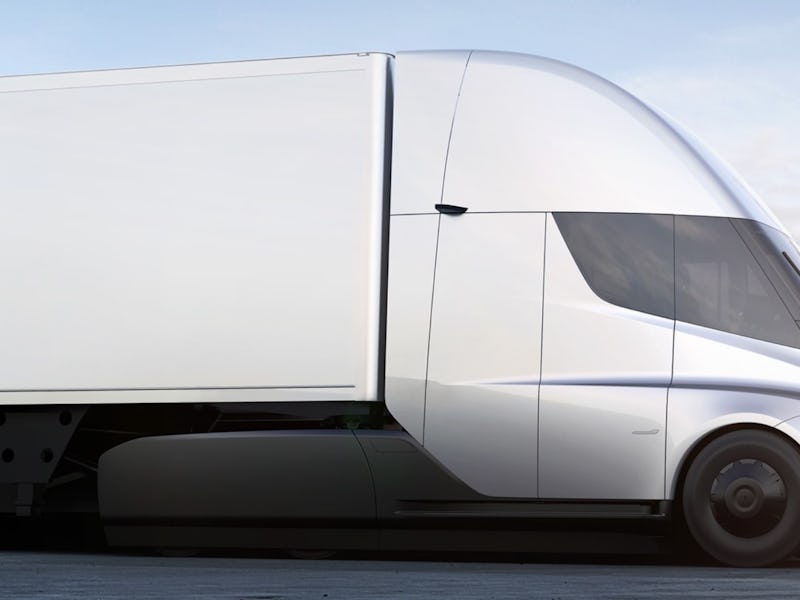The Tesla Semi is on a roll. Elon Musk’s electric truck isn’t expected to hit the road until 2019 at the earliest, but the company’s promise of between 300 to 500 miles of range per charge has professionals excited. While a number of companies have publicly announced their order numbers, some are holding off for real-world validation. One analyst thinks that this is a good thing.
“If this is the case, we expect the order momentum to increase in the coming months,” Adam Jonas, automotive analyst with Morgan Stanley, said in a note released Monday. “This may be both as a result of orders begetting orders as well as customers getting past the goal line on their conviction. The Tesla semi has already received important validation from some customers.”
The team confirmed “over 250” units from public order announcements. These include nearly 200 from PepsiCo, Sysco and Anheuser-Busch, which only placed their orders in the last two weeks. Wal-Mart also plans to order 15 trucks, as well as major package delivery company DHL which plans to order 10 vehicles.
Jonas’ team spoke with XPO Logistics, who has been testing prototypes for the last 18 months. The company claimed that the truck lived up to Tesla’s claims. These include a five percent performance boost over diesel trucks, fast recharging time (Tesla claims a 30-minute wait from one of its new solar-powered Megachargers), anti-jackknifing features that stop the truck from maneuvering dangerously, and payload capabilities similar to a diesel truck.
The Tesla Semi.
However, range is still a relative unknown. The company claims that the entry-level 300 mile range model will have a price of $150,000, with a 500-mile edition coming in at $180,000. Both of them require a $20,000 reservation. It’s impressive, but Tesla will need to deliver on both this promise and that to build a Megacharger station every 400 miles in the United States, a combination of which Tesla says could cover 80 percent of shipping round trips.
At the same event, Tesla announced the second-generation Roadster, a $200,000 vehicle capable of reaching 0-60 miles per hour in 1.9 seconds. It also has a 200kWh battery pack, capable of running for 620 miles. The company has scheduled the launch for 2019.
“Tesla has the lineup and the ambition – it’s now time to deliver,” Jonas said. “Between the Model 3 rollout, the gigafactory, the Semi and the Roadster (not to mention the upcoming Model Y and pickup, which Tesla also teased at the event), Tesla should have its hands full for the next three years.”
